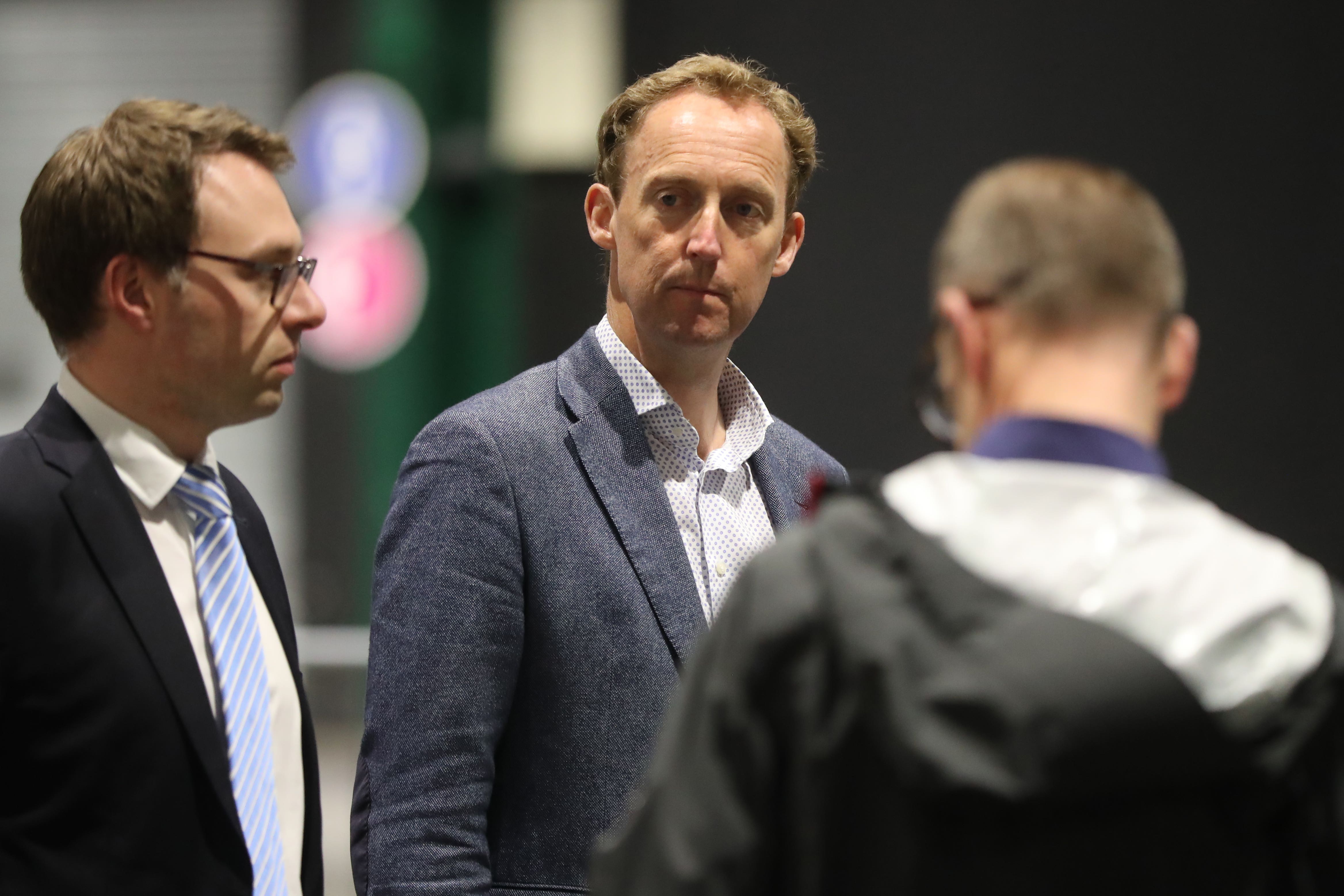Irish MEP accuses von der Leyen of ‘silence’ on genocide case against Israel
The Government MEP accused the EU of ‘hypocrisy and double standards’ on Gaza compared to the war in Ukraine.

An Irish MEP has accused European Commission president Ursula von der Leyen of being “silent” on the genocide claims facing Israel in a top UN court.
Fianna Fail MEP Barry Andrews also called on other EU states to join Ireland in legally intervening in South Africa’s case against Israel at the International Court of Justice (ICJ).
Ireland is expected to intervene to emphasise the importance of protecting civilians once the main case has been filed.
Mr Andrews, who is an MEP from one of the Irish government’s coalition parties, co-hosted a legal discussion in Brussels about the case.
Academics argued that the EU had not used every option available to reduce the number of Palestinian deaths and casualties, and emphasised the importance of third-party states enforcing the interim orders of the court.
The ICJ has issued two interim orders for Israel to prevent genocidal acts in Gaza and to ensure the “unhindered” delivery of food, water and medical supplies into the war-ravaged enclave.
Israel stringently denies it is committing genocide and says its military campaign is self defence.
It could be years before the case reaches a final judgment.
At the panel discussion, academics said that the interim orders issued in January and March trigger, at the very least, obligations to prevent a genocide.
“In order for these to be triggered, you don’t need a genocide to be ongoing,” said Vaios Koutroulis, professor of public international law at the Universite libre de Bruxelles.
The deputy head of Mission of the State of Palestine to the EU, Adel Atieh, asked about whether EU trade programmes Israel is part of was aiding its military offensive, and whether there was any obligation on the EU as a group of countries to prevent genocide.
“The EU has some exclusive competences to elaborate policies, mainly in trade, in scientific cooperation, and I’m referring mainly here to the participation of Israel to some scientific programmes and even to the Galileo programme,” he said.
“It would be an excellent question to check whether Israel is using the telecommunication network to identify targets in Gaza, and how Israel might use technology to kill civilians.”
Dill Janiana, professor in Global Security and co-director of the Oxford Institute of Ethics, Law and Armed Conflict, said in reply that actions taken by the EU amounted to “very, very little”.
“I’d really like to urge all policymakers and distinguished guests present today to think about the measures to be taken that are effective, ethical and legal,” she said.
“I do not think that a military intervention, yet another belligerent using force on this tiny, exhausted strip of land, is the way forward.
“But at the same time and I think this goes to the ambassador’s last question, there is ample room for measures that are effective, legal and ethical to reign in Israel’s conduct in the Gaza Strip that have simply not been taken yet.
“So I would really urge policymakers to think about restraining Israel’s conduct through arms embargoes, through the withdrawal of diplomatic and financial support, and through diplomatic pressure because I think there’s a huge space between what is, in principle, possible, legal and ethical and what has actually been done so far, which is very, very little.”
Mr Andrews said EU “double standards” – comparing its response to ICJ provisional measures for Ukraine and for Gaza – had been “well illustrated”.
He added: “I think the point about double standards has been really well illustrated… About the way we’re approaching the Ukraine case and the European Union requiring that there would be compliance with provisional measures in the Ukraine case compared to silence in this one.”
He said that he wished to question the value of states like Ireland legally intervening in South Africa’s ICJ case.
He also asked “how can we force the European Union to do more”, even though the EU is not a signatory to the Genocide Convention.
Speaking after the event, Mr Andrews said: “When international law applies to some but not to others, this is hypocrisy and double standards.
“The EU Commission and Ursula von der Leyen are staying silent on South Africa’s genocide case against Israel at the International Court of Justice, despite supporting Ukraine in its proceedings before the same court in 2022.
“International law must be upheld in all circumstances.
“Ireland will intervene in the South Africa v Israel genocide case.
“When will other EU states join?”
Bookmark popover
Removed from bookmarks